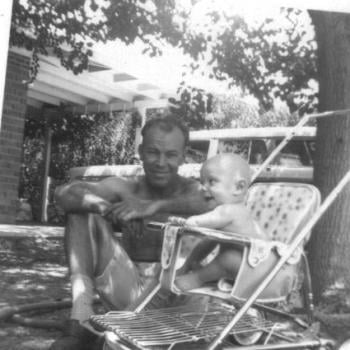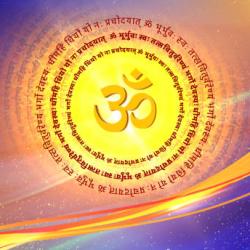The Three Amigos would in some ways accept and in other ways reject Lohre's point. "The question of boundaries is absolutely essential," Falcon insists. "I must find a way to connect with another faith without taking on its identity. What we are doing is acknowledging other faiths as legitimate paths to a shared universal." The three recently discussed a newspaper editorial that criticized Christian groups for holding Seders in their churches -- as if the Seder is a tradition possessed by Christians. The three agreed with the critique. Their own interfaith Seder, they noted, is a Jewish celebration, led by a Jewish rabbi, but with interfaith elements.
The three are also dissatisfied with the kind of interfaith service in which participants try to find a lowest common denominator of faith. Far more intriguing and satisfying to them is offering hospitality to one another in their respective congregations and working with one another on common projects. When they speak at one another's events, they speak from their own Jewish, Christian or Muslim tradition. They cite their own sacred texts and tell stories from their own traditions.
Nevertheless, the Three Amigos also tend to blur the boundaries. For example, Mackenzie has asked Rahman and Falcon to help him serve the elements of communion at a service at University Congregational. For him, it is deeply meaningful to have Rahman and Falcon holding the baskets of bread as the congregation comes forward to share in this central Christian ritual. It links the three men and the three faiths together. It is important to note that the UCC has a tradition of open-table fellowship at communion and that at University Congregational the elements are called "the bread of life" and "the cup of blessing." This communion service does not focus on the christological distinctives of the meal the way that many other Christian services would.
Falcon said that, for him, being part of a Christian communion service at the church felt like being on sacred ground. Sharing bread and wine is very much a part of Jewish culture, and he has himself hosted the sharing of bread and wine with his two friends in many other contexts, including the moment of entrance into the celebration of Shabbat. He said that though he would not hold a communion service in his synagogue, he believed he could participate in communion without taking on a Christian identity. Falcon likens faith and faith traditions to vehicles -- when he is in Mackenzie's church, he is temporarily riding in that vehicle. That doesn't mean the vehicle becomes his, but he can ride along in it for a while without compromising his own. Likewise, he can invite others to ride in his vehicle.
Mackenzie observes, "I think Christians have misunderstood the Great Commission. When Jesus says, 'Go and make disciples of all nations,' we think he means go and make Christians of all nations. But he doesn't say that. To be a disciple of God means to be a disciple of love. Maybe he means that we are called to help people find the way of love." Mackenzie, who was a Presbyterian minister before serving at University Congregational, cherishes the theological and ecclesial freedom he finds in the UCC and believes that it has helped to foster the deep interfaith relationship he has with Falcon and Rahman.
The Three Amigos also emphasize that they are all members of Abrahamic traditions. Their shared ancestor makes possible a conversation about oneness or about what Rahman calls their "large and dysfunctional family" that would be more difficult to conduct with those outside the Abrahamic faiths. The three are in conversation with Hindus and Buddhists, but "for now," Rahman says, "we have a lot of work to do to heal the rifts in our own family."
The Three Amigos have not shied away from difficult conversations. The height of personal conflict came in the still-unfinished process of writing a book together. "There was," says Falcon, "a line written by Jamal about which I said, 'If that line is in the book, then I am not in the book.'" As Rahman recalls it, the line was about the security wall built by Israel: "The wall may keep out suicide bombers, but it cannot keep out the cries of oppression and injustice that could break through a thousand walls." For Falcon, who grew up in a passionately Zionist family, and who remembers that his grandfather planted a tree for him in Israel every year on his birthday, that particular sentence was too one-sided -- it failed to recognize the suffering on both sides that is at the heart of the Israeli-Palestinian conflict.
The two resolved the issue by agreeing never to sign onesided statements issued by their communities. Whenever a request comes to sign a petition or a public letter, they refuse if the issues are presented in a way that takes into account only one side of the story.
Rahman is a slight Bangladeshi man, a third-generation Sufi teacher with an infectious, musical laugh. He teaches about Islam primarily through stories, humor and quotations from the Qur'an and the poet Rumi. He is a Sunni Muslim who believes that he is called to serve Seattle's unchurched. While not hawkish, he does highlight the suffering of Palestinians and issues a strong condemnation of Israel's policies. "What kept us talking, what allowed us to wander into this territory and stay while we tried to understand each other better, was that we were already longtime friends," says Falcon. "We had a lot invested in our relationship."




